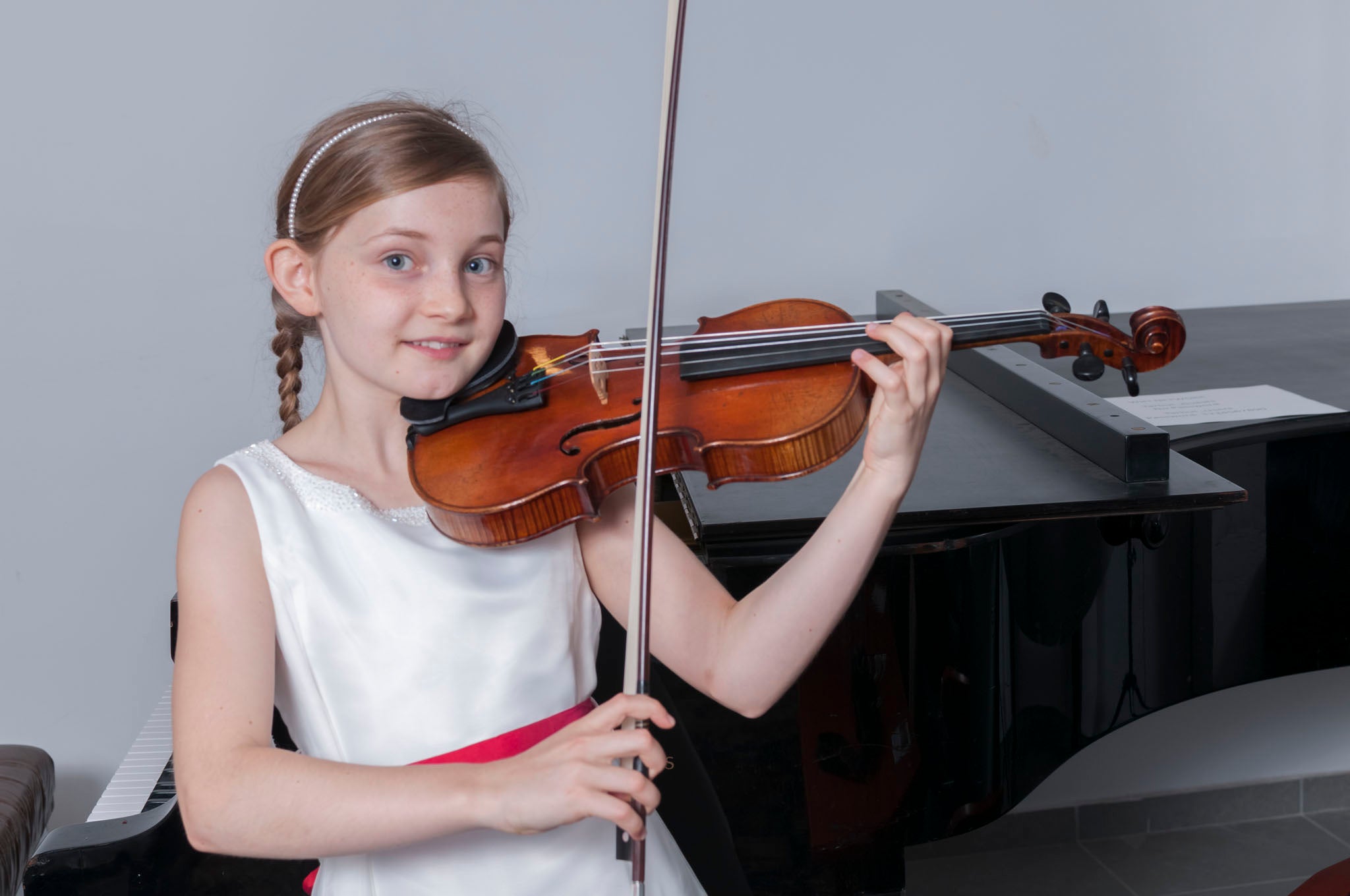So how do you talk to a modern Mozart?
Meeting a child prodigy demands a special sort of etiquette


I went this week to hear a prodigy. Ten-year-old Alma Deutscher gave a recital at the offices of M&C Saatchi Arts in London. Lord (Maurice) Saatchi introduced her as “the most extraordinary person” he had ever met. So no pressure there then for a 10-year-old about to perform.
Alma is a soloist on both piano and violin, has played with the Israel Philharmonic, and is also busy building up an international reputation as a composer. The YouTube clip of her performing her own violin concerto has become an internet sensation, described by Stephen Fry as “simply mind-blowing” after he watched it. Not content with all that, she has written one full length opera and two mini-operas (the first when she was four).
The young girl, who is British and lives in Dorking, Surrey, is the child of an Israeli linguist and English mother, a former organ scholar at Oxford.
Piano, violin, operas, a concerto… what’s a girl to do in her spare time? Alma has found the answer. She has written a novel. Her performance for the gathering the other night was memorable, a recital on piano then violin (one piece by Bach, the other by Alma Deutscher), followed by her singing three arias from her latest opera.
With all this in mind, I found meeting her afterwards problematic. What is the correct etiquette for a conversation with a child prodigy? Do you speak to her as you would any other 10-year-old? Ever so slightly avuncular? Or do you speak to her nervously, with awe and trepidation, remembering that she is someone who is infinitely more talented and accomplished than you have ever been or ever will be? Do you call her by her first name as you would any other 10 year-old. Or, as a distinguished artist is she Miss Deutscher, maybe Ms Deutscher?
Looking on the internet for guidance I discovered that technically, according to psychology research literature, a child prodigy is “under the age of 10.” So, poor Alma is already over the hill. It’s all very confusing.
My approach in conversation was to find the 10 year-old behind the phenomenon. What, I asked, were her hobbies outside of music.
Oh, ballet, painting, writing stories, she said. Oh, and climbing trees. That was encouraging.
Then we talked music. E flat major, she enthused, “is my favourite key.” Well, there’s a childlike touch. Does she get nervous performing? “No, I get excited.” And there’s another.
So there’s always a child somewhere in a child prodigy. But meeting to one is a disconcerting business. But then, my record on prodigies isn’t very good. Some years back I was invited by a record company to hear a 12 year-old child singer it had high hopes for. She was an unknown, and frankly I didn’t fancy giving up an evening just to be present at the first showcase of some child who would probably never be heard of again. As it happens, Charlotte Church did OK anyway.
When box office figures are impossible to predict
Theatres are notoriously cagey about publicising their box office figures. So, one is grateful to The Stage newspaper, which each month manages to give a snapshot of figures for London’s West End playhouses by monitoring the progress of a number of productions. It counts available tickets online on different days of the week. For December, which is traditionally the West End’s most lucrative month, it estimated that a third of seats on average were unsold for The Mousetrap and for Mr Foote’s Other Leg. The latter stars the great Simon Russell-Beale, and was directed by the equally brilliant Sir Richard Eyre. You’d have thought that would have been a sure thing. Who’d be a producer?
Mr Tolstoy reviewed by… Mr Tolstoy
The BBC’s adaptation of War and Peace has received a good review in Russia, and it’s from President Putin’s cultural adviser. The cultural adviser has told the state news agency RIA Novosti: “I welcome any attempt to adapt Tolstoy’s works for the screen that is done with respect for the text and the author. I think the BBC’s work is one of these.” It’s only fair to add that Putin’s cultural adviser is one Vladimir Tolstoy, great-great-grandson of War and Peace’s author. David Cameron is missing out. He doesn’t seem to have a cultural adviser, certainly not one who is authorised to comment publicly on TV adaptations. Isn’t there a descendant of Dickens somewhere looking for a job?
d.lister@independent.co.uk/twitter@davidlister1
Join our commenting forum
Join thought-provoking conversations, follow other Independent readers and see their replies
Comments
Bookmark popover
Removed from bookmarks